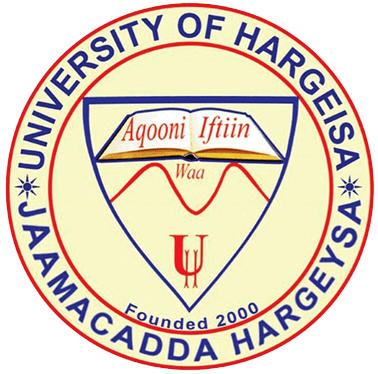INTRODUCTION
University of Hargeisa(UoH) is inviting applications for four Ph.D. fellowships in vector-borne diseases (VBDs) and maternal health to the Building Strong Universities (BSU) project. The project is a collaborative effort involving UoH, the University of Copenhagen(UoC), Roskilde University (RUC) and the University of Southern Denmark(SDU). The project is funded by the Danish government through the Danish Ministry of Foreign Affairs. The selected candidates will most likely be enrolled at a university in Tanzania, and part of their training during their PhD studies will be conducted in Denmark.
The PhD projects
Vector-borne diseases research
Vector-borne diseases (VBDs), such as malaria and arbovirus infections (e.g., dengue, chikungunya, etc.), constitute an important health challenge in Somaliland. This challenge is further compounded by the effects of climate change, which can profoundly impact disease transmission dynamics. The main public health challenges related to VBDs, specifically malaria, are multifaceted and underscore the urgent need for comprehensive research and interventions. Within this context, the UoH aims to establish a state-of-the art VBD research group with the aim to contribute to the current understanding of VBD situation in Somaliland and to generate a robust body of knowledge to inform on disease surveillance, strengthen healthcare responses, and guide the development of targeted strategies for VBD prevention. One of the main approaches intended to achieve this overarching aim involves the training of two PhD candidates: one laboratory-based, focusing on the prevalence and burden of VBDs (Ph.D. 1) and the other examining the barriers and facilitators of VBD management (Ph.D. 2).
The PhD1 will by quantitative methodologies, explore the temporal exposure and susceptibility of VBDs on the human population exploring the prevalence and burden of VBDs (with a focus on malaria) including the installment of molecular tools for diagnostics of VBDs.
The PhD2 will examine healthcare-seeking behavior of individuals when experiencing malaria or other VBD related symptoms, access and available facilities of the healthcare system and the health care system itself. This will be done by applying an interdisciplinary approach, combining medical and social sciences, including both quantitative (surveys) and qualitative studies (interviews and focus group discussions).
Maternal health research
Somaliland is characterized by an alarmingly low coverage rate of antenatal care (47%) and childbirth by skilled attendance (40%). The critical reproductive health situation in Somaliland is further reflected by a high maternal mortality ratio at 396/100,000 livebirths, high teenage pregnancy rate (8.6%) and low contraceptive prevalence rate (6%). Within this context, the overall aim with the reproductive health project is to explore health system structures that are essential for the continuum of maternity care in Somaliland. This will be achieved through two PhD studies, one focusing on antenatal care (PhD 1) and one focusing on postpartum contraceptive use (PhD 2). The project takes an inter-disciplinary approach, combining medical epidemiology and social science. In terms of methodology, it will consist of a joint community-based survey, two prospective cohort studies, one focusing on antenatal care and one on postpartum contraceptive use. In addition, qualitative methodology in terms of qualitative interviews and observations will be applied.
PhD Supervision
Senior faculty staff from the UoH, Tanzania and Denmark will be involved in the supervision of the PhD candidates. The selected PhD candidates will be offered a four-year scholarship, spending most of the time in Somaliland and part of the studies in Tanzania and Denmark. Evaluation of the progress of Ph.D. activities will be done according to the regulations of the UoH.
Requirements
Applicants must have:
- Valid membership of the academic staff of the University of Hargeisa.
- Master’s degree or equivalent qualification in a relevant field, such as public health, biology, medical laboratory, ecology, epidemiology, sociology or anthropology with a minimum pass of70% or a minimum CGPA of 3.00.
- Interest in inter-disciplinary collaboration and proven experience in the areas outlined above.
- Strong interest in Maternal health or Vector borne diseases.
- Willingness to commit full time to the PhD training program.
- Astrongambitiontoaccomplishtheresearchgoalsandtopursueascientificcareerpath.
- Strong command of English in speaking and writing.
- Willingness to serve as permanent teaching staff at UoH, conduct extensive field research in Somaliland and ability to spend in aboard.
- Prior publications or experience relevant to the research theme will be considered an asset.
Priority will be given to candidates with a documented interest in previous experience with maternal health, lab-based and/or epidemiological field research or qualitative health research.
The Application Letter Must Include
- A letter of motivation (1 page),
- A 2–3-page concept notes of your proposed research for either the maternal health or vector borne diseases, excluding references
- Copies of certificates and academic transcripts
- Recent CV indicating position, employer, and Applicant’s detailed address
- List of peer-reviewed publications and national/international scientific presentations (if any),
- Two letters of recommendation from collaborated academicians with their telephone numbers and e-mail addresses.
Application Deadline
The Application deadline is 31st Oct 2023.
All applications must be submitted to Director, Human Resource Management, University of Hargeisa through E-Mail: director.hr@uoh.edu.so
Please, note that only short-listed candidates will be contacted for a selection interview. The interviews will take place in early November/December2023.
